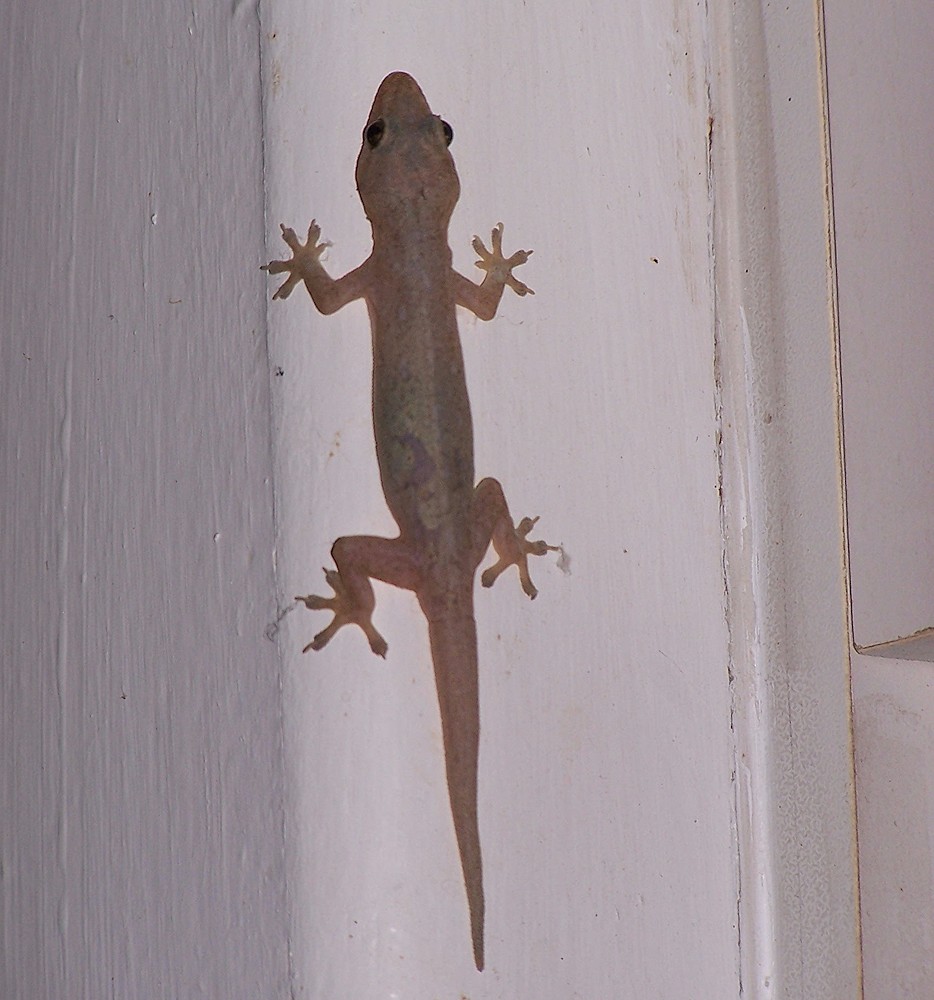Oriolus
Not so new Member
- Joined
- Feb 24, 2009
- Messages
- 16
- Reaction score
- 0
Hi guys. I was hoping you could help me with identification of the Asian House Gecko and the Mourning Gecko. I understand both of these species occur in houses in the Townsville region, which is where the photo below was taken. I know that AHG has prominent spines along its original tail, but not on a regenerated tail. The gecko below seems to have a faint band at the base of the tail as if it may have regenerated. The AHG has the 'chuck chuck chuck' call. Do MG have a call? Which species do I have here, and how are these two species most reliably identified (without looking under their toes  )
)

possible Mourning Gecko (Lepidodactylus lugubris) by Oriolus84, on Flickr

possible Mourning Gecko (Lepidodactylus lugubris) by Oriolus84, on Flickr



